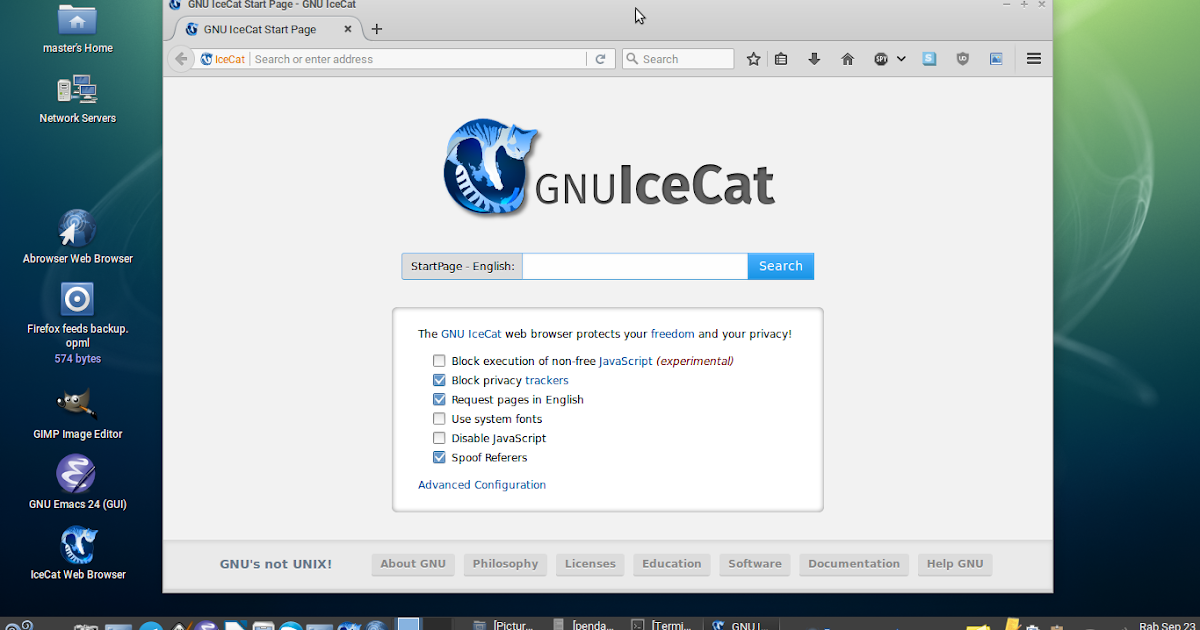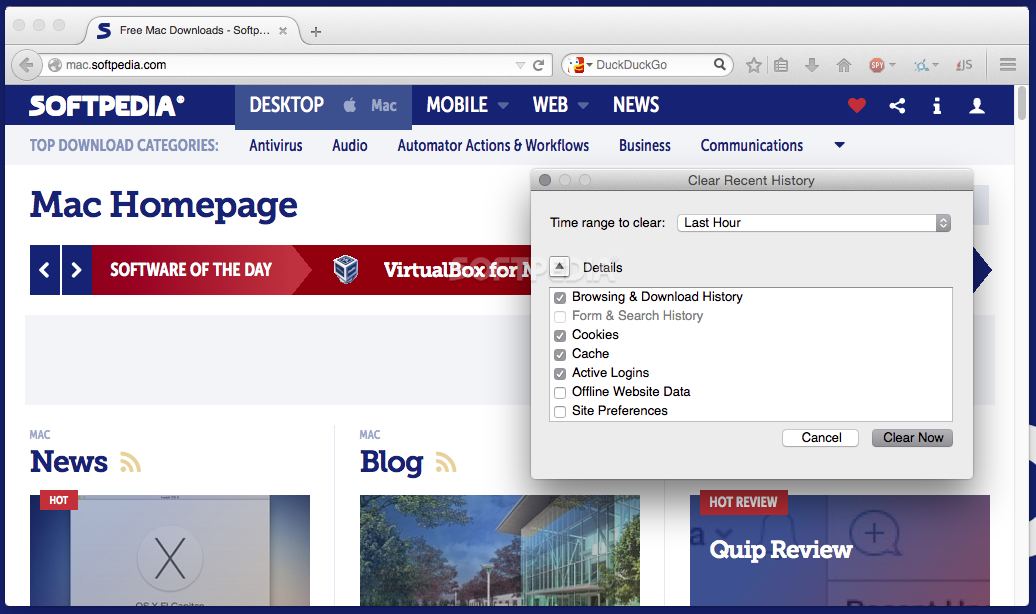
- #GNU ICECAT BROWSER. INSTALL#
- #GNU ICECAT BROWSER. 32 BIT#
- #GNU ICECAT BROWSER. CODE#
- #GNU ICECAT BROWSER. LICENSE#
#GNU ICECAT BROWSER. CODE#
Executable code is compiled for specific instruction set architectures (ISAs).
#GNU ICECAT BROWSER. INSTALL#
It's not the difference between Ubuntu and Debian and Raspbian you can install Ubuntu or Debian on a Pi if you want, but those instructions will than not work any better then they did on Raspbian.
#GNU ICECAT BROWSER. 32 BIT#
Neither a 64-bit program can run on a 32 bit operating system like Raspbian nor can an X86 program run on an ARM processor.Īm I wrong to assume that these Ubuntu instructions would work for other Debian like systems such as Raspbian? But the most imporant information is that it is a 64-bit executable compiled for X86 (intel proccesor). usr/bin/icecat/installed/icecat/icecat: ELF 64-bit LSB executable, x86-64, version 1 (SYSV), dynamically linked, interpreter /lib64/ld-linux-x86-64.so.2, for GNU/Linux 2.6.32, BuildID=d043e81b32b71a57818b9aa510aced22459e40d7, strippedĪs you can see icecat is an executable ELF file so you cannot start it as shell script with sh /usr/bin/icecat/installed/icecat/icecat as you did. Now if I look at icecat with file I find: rpi ~$ file /usr/bin/icecat/installed/icecat/icecat Rpi ~$ sudo tar -xvf icecat* -C /usr/bin/icecat/installed

First I had to create it with before unpacking the archive: rpi ~$ sudo mkdir -p /usr/bin/icecat/installed If I follow your commands, first I get an error massage tar: /usr/bin/icecat/installed: Cannot open: No such file or directory. usr/bin/icecat/installed/icecat/icecat: 2: /usr/bin/icecat/installed/icecat/icecat: Syntax error: Unterminated quoted stringĪm I doing something wrong? Am I wrong to assume that these Ubuntu instructions would work for other Debian like systems such as Raspbian? usr/bin/icecat/installed/icecat/icecat: 10: /usr/bin/icecat/installed/icecat/icecat: ��A��

usr/bin/icecat/installed/icecat/icecat: 1: /usr/bin/icecat/installed/icecat/icecat: not found usr/bin/icecat/installed/icecat/icecat: 1: /usr/bin/icecat/installed/icecat/icecat: cannot open �0�A3: No such file usr/bin/icecat/installed/icecat/icecat: 2: /usr/bin/icecat/installed/icecat/icecat: not found usr/bin/icecat/installed/icecat/icecat: 1: /usr/bin/icecat/installed/icecat/ice: not found usr/bin/icecat/installed/icecat/icecat: 1: /usr/bin/icecat/installed/icecat/icecat: ELF: not found sudo tar -xvf icecat* -C /usr/bin/icecat/installedĬorrectly extracts it, but $ sh /usr/bin/icecat/installed/icecat/icecat

I would like to examine the motives of anyone who has a problem with that before using their software.I'm looking for a version of Mozilla Firefox for the raspberry pi that isn't so restrictive on it's use of the logo.
#GNU ICECAT BROWSER. LICENSE#
The open source license does allow you to recompile it with spyware or even legit stuff, but then you have to change the name. Mozilla has a lot of fans who trust Firefox and that's because they don't allow just anyone to make a Firefox with spyware bundled. That being said, IceCat and other Firefox derivatives have the advantage of not being held back by Mozilla's trademark, but this comes at a potential cost, too. It's your prerogative if you want to put your head in the sand and pretend none of this has any effect on you, but don't trash talk those who are doing things right just because you've given up. The makers of that site spam their links on other sites as well because they want people to use their hacked distributions. It happens, and it's happened at a site that was made to look a lot (but not exactly) like this one, and it comes up on the first page of a Google search that someone would be likely to make to find this site. Recompiling open source packages and distributing them with badware is not FUD to scare people. It's just a few random people who don't fully understand open source who think Mozilla is doing something wrong. Nobody who understands the issues at hand in fact, not one high-profile member of the open source community is taking Mozilla to task for this. What Mozilla is doing with trademarking an open source project is in fact legitimate. he's only been working with (not for) Mozilla for upwards of 6-7 years now.


 0 kommentar(er)
0 kommentar(er)
